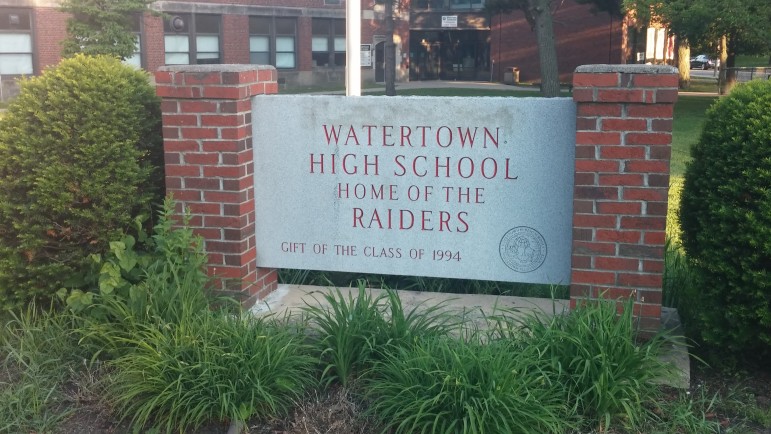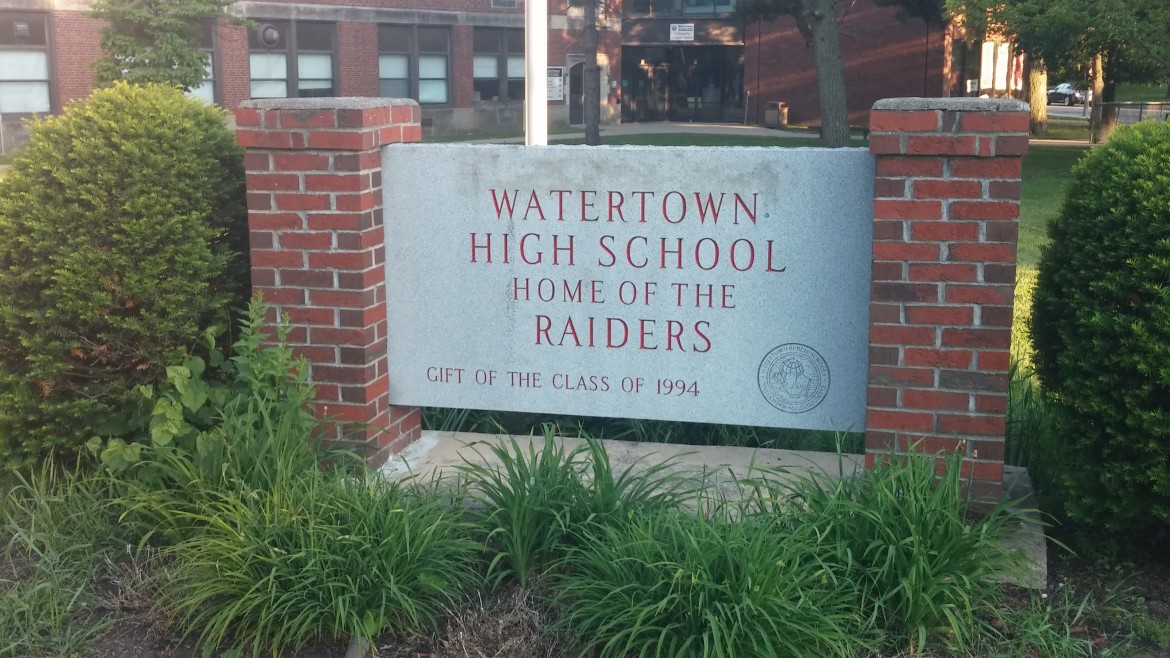
The Watertown School Committee passed a resolution opposing the graduation requirement of passing the MCAS for the Class of 2022 because the students were adversely impacted by the COVID-19 pandemic.
The subject came up when the School Committee considered a resolution from the Massachusetts Association of School Committees (MASC) that opposed requiring the Class of 2022 who missed the MCAS having to make up the test and pass it in order to graduate. It also called for a moratorium on high-stakes testing during the 2020-21 school year as well as the following three years.
While School Committee members agreed that the pandemic adversely impacted students learning, not all agreed that the testing should be suspended for three years.
The resolution was brought to the attention of the School Committee by Lily Rayman-Read, who is one of Watertown’s representatives to the MASC.
School Committee Vice Chair Kendra Foley said she could not sign on to a resolution calling for a longterm moratorium.
“I hear the argument for last year’s 10th graders and this year’s 10th graders, but I struggle with the three-year moratorium,” Foley said. “I don’t know what the future will be, I don’t even know what tomorrow will bring.”
Rayman-Read said she believes that high-stakes testing adversely impacts students of color, and she said that she believes supporting the use of the MCAS as a graduation requirement would be counter to the other anti-racism and equity work the district is doing.
She added that, as a teacher in Cambridge, she said that she does not find the MCAS useful.
“I will say MCAS has never benefited my practice at all, in fact if anything it has taken time away form my practice and distracted me from the work that really needed to happen, so I think most educators would agree with that,” Rayman-Read said. “Since we have a really robust (internal assessment) program in Watertown I don’t think we need to take time away with more testing, especially this year.”
Foley said that some groups that advocate for children of color support using standardized tests.
“The NAACP is supportive because it shines a light on districts that are not serving black and brown students,” Foley said. “It is an important tool for makes sure we are serving all students well.”
School Committee Chair John Portz said he sees the impact on students who have been learning remotely for most of the past two year, but is not sure about the future.
“The notion that last year and this year are really connected to the challenges of instruction in COVID-19 times — it impacts them significantly. I think that makes sense,” Foley said. “I understand Kendra’s point not to take action that covers the next three years.”
Superintendent Dede Galdston said she does not think that the students should be spending time taking the MCAS tests.
“We don’t have enough time in our days to be pulling our kids to take tests. We have kids on remote learning,” Galdston said. “We would have to have them come into building, and we have kids (on full-time) remote who can’t come in. It really is too much.”
School Committee member Amy Donohue asked whether moving away from the graduation requirement, or taking the test at all, would change the way Watertown High School organizes its classes and aligns the curriculum to the test.
Galdston said the way the school delivers the curriculum would not be impacted, noting that the district curriculum and the MCAS are both based on the state standards.
“I always say we teach the standards and we don’t teach for the test, so it doesn’t matter,” Galdston said.
The School Committee removed the section of the MASC’s resolution about opposing the use of the test in the next three years, and voted to support the opposition of using the state’s standardized test as a graduation requirement for the Class of 2022. The motion passed unanimously.
